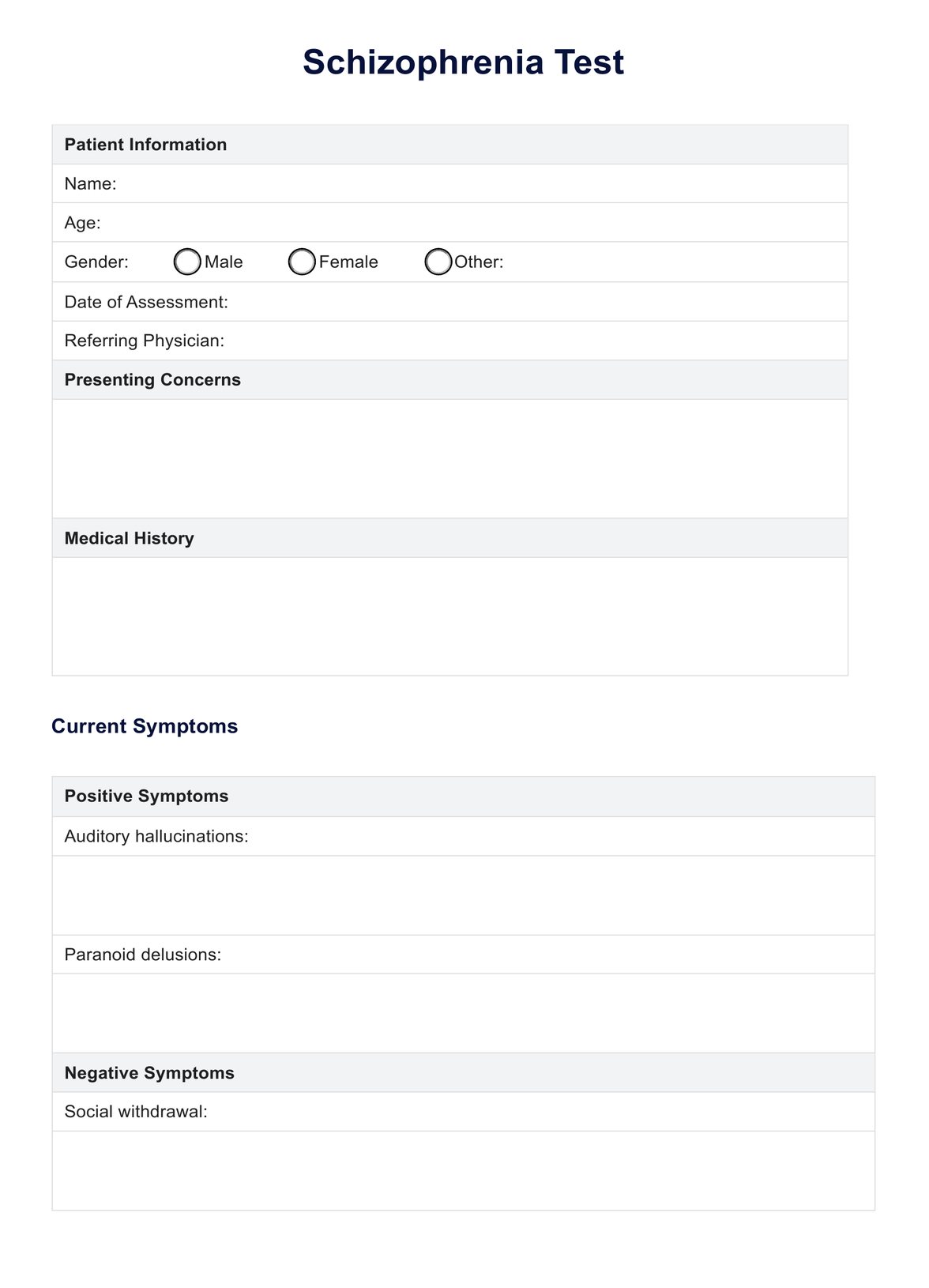Schizophrenia is diagnosed through clinical evaluation by a qualified mental health professional. This typically involves a comprehensive assessment of symptoms, history, and functioning guided by standardized diagnostic criteria outlined in the DSM.

Schizophrenia Test
Efficiently diagnose schizophrenia symptoms with our test & examples. Free PDF download available for practical practitioners.
Use Template
Schizophrenia Test Template
Commonly asked questions
While there's no cure for schizophrenia, including the paranoid subtype, treatment can effectively manage symptoms and improve quality of life. Medication, therapy, and support services are often part of a long-term management plan.
Yes, schizophrenia is typically a lifelong condition. However, many individuals can effectively manage symptoms and lead fulfilling lives with appropriate treatment and support.
EHR and practice management software
Get started for free
*No credit card required
Free
$0/usd
Unlimited clients
Telehealth
1GB of storage
Client portal text
Automated billing and online payments











